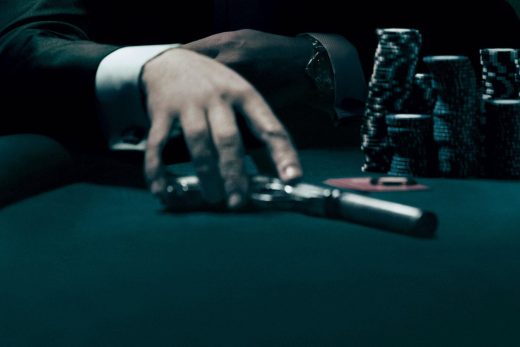From the smoke-filled backrooms of illicit casinos to the grandeur of high-stakes poker tournaments, gambling has long captivated the human imagination. Beyond the thrill of the games, the psychology of risk-taking, and the chance for riches, the world of gambling has found its way into the pages of literature, becoming a potent narrative tool for writers to explore themes of luck, fate, and human nature. Throughout literary history, gambling has been skillfully woven into the fabric of many beloved stories. Classic works like Fyodor Dostoevsky’s The Gambler delve deep into the psychological turmoil of addiction and the tumultuous emotions that accompany high-stakes gambling. Dostoevsky’s own struggles with gambling lend authenticity to the protagonist’s struggles, making the narrative all the more compelling.
Similarly, Bret Easton Ellis’ modern classic American Psycho features scenes of poker games that serve as a microcosm of the characters’ ego-driven power struggles, reflecting the excesses of the era. Poker, with its intricate strategies and inherent tension, is a favorite among authors seeking to convey both external competition and internal conflict. In Ian Fleming’s Casino Royale, the legendary James Bond engages in a high-stakes poker match that becomes a battle of wits as much as a game of cards. The scene not only showcases Bond’s suave demeanor but also underscores the notion that poker is as much about deception and reading opponents as it is about having a strong hand. download kiss918 apk Gambling’s allure often lies in the concept of a decisive moment – the turn of a card or the roll of a dice that can alter the course of a life. This narrative tension is exemplified in the short stories of O.
Henry, whose The Last Leaf tells a tale of a desperate young artist gambling her life on a single leaf’s ability to endure the winter, revealing the fragile line between hope and despair. Incorporating gambling into literature is not just about the thrill of games; it’s about exploring human nature at its most vulnerable and volatile. It examines the lengths people will go to chase luck or escape adversity, showcasing characters at their most intense and desperate moments. The metaphorical implications of gambling in literature extend beyond the casino tables, serving as a reflection of the human experience itself – a risky endeavor with uncertain outcomes. In conclusion, the intertwining of gambling with literature has produced a rich tapestry of stories that delve into the intricacies of human behavior, the seduction of risk, and the thin line between fortune and ruin.




